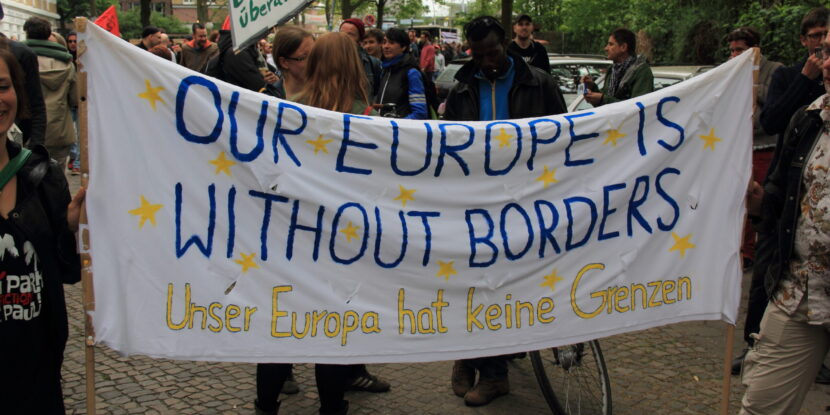❓WHAT HAPPENED: A study marking German reunification revealed that over one-third of 35-year-olds in the country have a migration background.
👤WHO WAS INVOLVED: The study was conducted by Germany’s Federal Statistical Office (Destatis) and included data from 1990, the year West Germany and East Germany reunited.
📍WHEN & WHERE: The study focused on those born in 1990, the year the Berlin Wall fell, and reflects on the current demographics of Germany.
🎯IMPACT: The findings highlight the growing demographic and economic challenges posed by mass migration, including unemployment and social tensions.
Germany’s Federal Statistical Office (Destatis) has released a new report examining the demographic profile of individuals born in 1990, the year East and West Germany were reunified. The report highlights that approximately 1.1 million people were born in that year, representing about 1.4 percent of the country’s current population. Of this group, 36 percent have a migration background, significantly higher than the 26 percent observed across the total German population. Destatis noted that around 80 percent of those with a migration background in this cohort arrived in Germany after reunification.
The data reflects broader demographic shifts in the country. According to recent figures, one in three young adults in Germany aged 20 to 39 now comes from a migration background. The proportion of the overall population with migration roots continues to climb steadily, with migrants and their descendants making up more than a quarter of the total population as of 2024.
This trend has accelerated particularly since 2015, when former Chancellor Angela Merkel made the decision to open Germany’s borders during the European migrant crisis. Between 2015 and 2020, approximately 1.5 million people entered Germany as refugees. Millions more followed through chain migration, reshaping the country’s social and cultural fabric.
The economic and social impacts of this demographic change have been significant. Data from the Federal Employment Agency shows that 33 percent of the long-term unemployed in Germany are migrants. In addition, migrants make up a large share of those receiving social welfare. A 2023 report revealed that 60 percent of welfare recipients in Germany come from a migration background.
Public opinion on the consequences of mass migration remains sharply divided. A Forsa poll found that only 21 percent of Germans believe the country has successfully managed the influx of migrants. Meanwhile, 41 percent say Germany has not coped well, and 37 percent believe the country has not coped at all.
Negative attitudes towards mass migration have been reinforced by a number of violent incidents in recent years involving asylum seekers or others with migration backgrounds.
Join Pulse+ to comment below, and receive exclusive e-mail analyses.




















